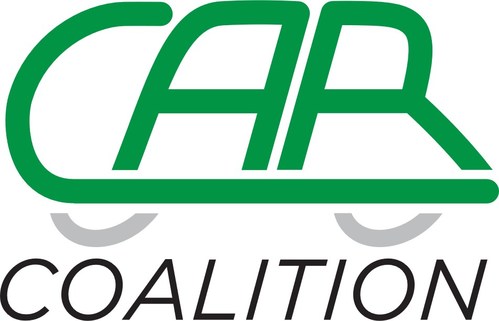REPAIR Act and SMART Act Research Papers Argue Right to Repair Solutions Needed in Wake of Advancing Technology
WASHINGTON, Sept. 20, 2022 /PRNewswire/ — The CAR Coalition, a growing group of independent automotive parts, management and repair companies, associations, and insurers committed to preserving consumer choice and affordable vehicle repair, today released two official research papers focused on the impact of right to repair legislation in the auto industry. The two papers, which are focused on the REPAIR Act (H.R. 6570), authored by Aaron Perzanowski of University of Michigan Law School, and the SMART Act (H.R. 3664), authored by Joshua Sarnoff of DePaul University College of Law, argue that in the face of rising costs and restrictions to auto repairs, consumers will face even higher costs without legislative action.
“Repair restrictions on automobiles are driving prices higher at a time when many Americans can least afford it,” said Justin Rzepka, Executive Director of the CAR Coalition. “These research papers demonstrate the impacts of these restrictions on consumers’ bottom lines. As technology develops, policy surrounding these issues must as well. It’s time for Congress to get serious about solutions, including the REPAIR Act and SMART Act, to ensure consumers have options for quality, safe, affordable auto repairs and more control over their data.”
Key excerpts from Professor Aaron Perzanowski’s paper focused on the REPAIR Act include:
- “Compared to independent repair shops, dealerships charge consumers 36% more for repairs.”
- “By denying consumers and their preferred independent repair providers access to this crucial information, carmakers and dealers can reduce competition and increase the cost of vehicle repairs.”
- “The REPAIR Act offers a sensible, forward looking, nationwide solution that protects the rights of vehicle owners and promotes a robustly competitive repair industry.”
- “[T]he provisions of the REPAIR Act would establish a comprehensive federal framework that affirms the rights of consumers, promotes competition in the auto repair market, and ensures safety and security.”
Read the full paper HERE.
Key excerpts from Professor Joshua Sarnoff on the SMART Act include:
- “[T]he SMART Act provides a limited and targeted compromise remedy for the restriction of the consumer repair right caused by design patents on exterior automobile repair parts.”
- “Without legislative adoption of the SMART Act, American consumers will continue to absorb over $1.5 billion per year in additional costs when they repair their vehicles after collisions.”
- “OEMs have increasingly and will continue to resort to using design patent rights to raise prices to consumers, prevent competition, and threaten the viability of the aftermarket in exterior automobile repair parts.”
Read the full paper HERE.
In states and Washington, D.C., the auto right to repair movement is gaining ground. In January of 2022, in the days leading up to the Biden administration White House Competition Council meeting, President Biden tweeted, “When you own a product, you should be able to repair it yourself. That’s why I included support for the ‘right to repair’ in my Executive Order.” Then in February, Congressman Bobby Rush (D-IL) introduced the REPAIR Act (H.R. 6570), and throughout 2022, the bill has gained 12 additional cosponsors: six Republicans and six Democrats. The SMART Act was introduced by Rep. Darrell Issa (R-CA) in 2021 and currently has three Republican and three Democrat sponsors.
The REPAIR Act will:
- Preserve consumer access to high quality and affordable vehicle repair by ensuring that vehicle owners and their repairers of choice have access to necessary repair and maintenance tools and data as vehicles continue to become more advanced.
- Ensure access to critical repair tools and information. All tools and equipment; wireless transmission of repair and diagnostic data; and access to on-board diagnostic and telematic systems needed to repair a vehicle must be made available to the independent repair industry.
- Ensure cybersecurity by allowing vehicle manufacturers to secure vehicle-generated data and requiring the National Highway Traffic Safety Administration (NHTSA) to develop standards for how vehicle generated data necessary for repair can be accessed securely.
The SMART Act will:
- Narrowly amend U.S. design patent law to reduce from 14 years to 2.5 years the time car manufacturers can enforce design patents on collision repair parts (fenders, quarter panels, doors, etc.) against alternative parts suppliers.
- Allow alternative parts suppliers to research, develop, make, and test parts on a not-for-sale basis during the new patent period.
- Allow alternative parts suppliers to sell an aftermarket collision repair part once 2.5 years have elapsed from the date of patent.
- Only aftermarket repair parts.
For more information about the REPAIR and SMART Acts, please visit carcoaltion.com.
ABOUT THE CAR COALITION
The CAR Coalition is committed to preserving and protecting consumer choice and affordable vehicle repair by ensuring competition in the automotive collision parts industry. Members include: Allstate, American Property Casualty Insurance Association (APCIA), Automotive Body Parts Association (ABPA), Automotive Manufacturers Equipment Compliance Agency, Inc. (AMECA), AutoZone, Carparts.com, Certified Automotive Parts Association (CAPA), Diamond Standard, Farmers, KSI Auto Parts, LKQ Corporation, and Tire Pros. Learn more at carcoalition.com.
Follow us on Twitter @TheCARCoalition
SOURCE CAR Coalition

